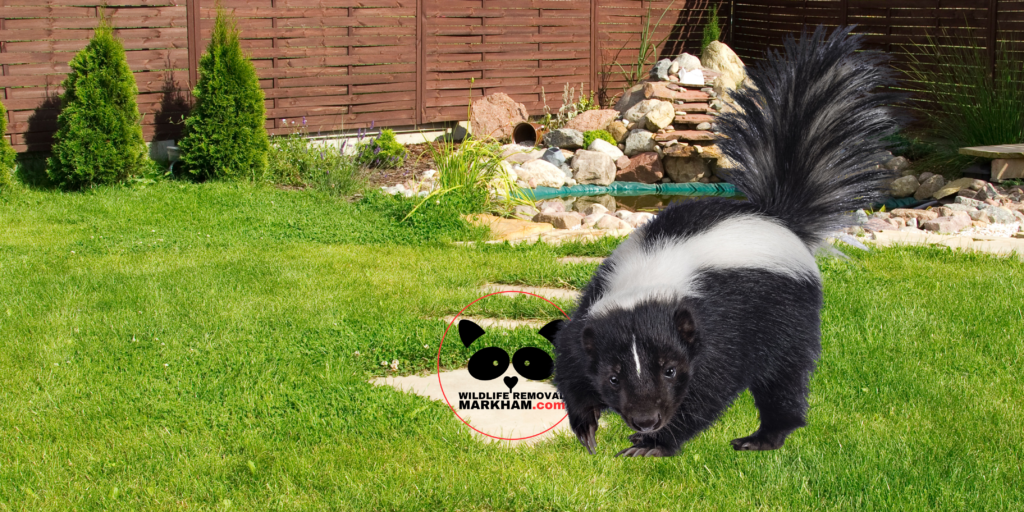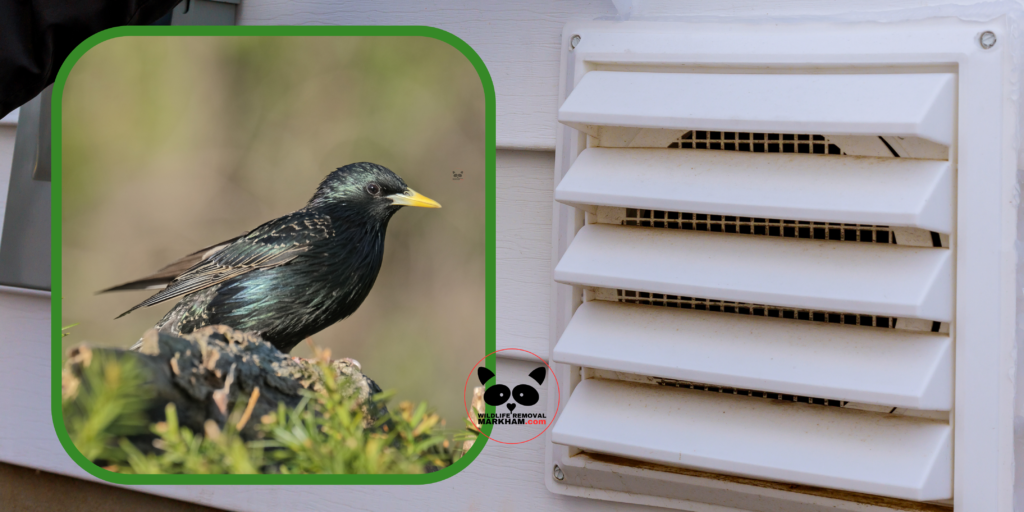Introduction
Skunks can be a nuisance when they invade your property, leaving behind a strong odour and potential damage. Skunk living on properties can cause unpleasant odors, pose threats to pets and children, and damage gardens. Whether they are digging in your yard, nesting under your house, or raiding your trash, it’s important to address the problem quickly. Understanding how to get rid of skunks safely and effectively while following local laws will help protect your home and pets.

Understanding Skunks and Their Behaviour
Skunks are nocturnal, solitary creatures that prefer to keep to themselves. These easygoing animals are omnivores, meaning they have a varied diet that includes insects, grubs, fruits, and small vertebrates. Recognizable by their distinctive black and white stripes, skunks use their appearance as a warning to potential predators.
One of the most notable features of skunks is their unique defence smell mechanism. When threatened, skunks can release a potent skunk spray from their anal glands. This spray is a powerful deterrent, capable of warding off other predators in the night and leaving a lingering, unpleasant odour on surfaces and clothing.
Understanding skunk behavior is key to effective deterrence and removal. Skunks are often drawn to sources like pet food and bird seed, so removing these attractants can help keep them away. Additionally, skunks are sensitive to loud noises, which can be used to scare them off. Motion-activated sprinklers or ultrasonic repellent devices can be particularly effective in deterring skunks from your property.
Identifying Skunk Activity
Skunks are nocturnal animals that often take shelter in dark, quiet areas. Signs of skunks living on your property include small holes in your lawn, an unmistakable smell, and scattered trash bins. They seek shelter under porches, sheds, and window wells, digging dens for protection. Unlike raccoons, which are excellent climbers, skunks are poor climbers, making it easier to prevent them from returning. It is important not to kill skunks as they play a beneficial role in the ecosystem by controlling pests.

How to Deter Skunks from Your Property
Eliminate Food Sources, Including Pet Food
Skunks are attracted to easy meals, such as pet food, bird feeders, and garbage left outside. Removing these food sources can prevent skunks from staying on your property. They also eat grubs and insects in the soil, so treating your lawn can help deter skunks from digging for food.
Seal Off Shelter and Den Sites
Closing off potential den entrances is essential to keeping skunks away. Skunks often seek shelter under porches, sheds, and other structures where they feel safe. Using wire mesh (hardware cloth) to block access will prevent them from nesting near your residence.
Use Natural Skunk Repellents
Strong odors can discourage skunks from settling in your yard. Sprinkling used kitty litter, dog urine, or predator urine near a skunk’s den entrance can make the area less inviting. Other repellents, such as rotten eggs or ammonia-soaked rags, can also help drive them away.
Install Deterrents
Using motion-activated sprinklers or bright light can scare skunks away at night. Loud noises can also disrupt their activity and make your property less appealing. Keeping your yard free of debris and potential hiding spots will further prevent skunks from moving in.
What to Do If a Skunk Is on Your Property: Check Local Laws
If a skunk has already settled on your lawn or property, using a one-way door can help evict it without harm. Contacting a local wildlife control company is your best bet, they can mesh around whatever structure the skunk is living under, and set a one way door to evict them. Trapping and relocating a skunk is not recommended. Trapping a skunk should only be done in accordance with local laws, as relocating wildlife without permission may be illegal. During breeding season, extra caution is needed to avoid separating a mother from her babies. Check window wells periodically, as they sometimes fall in and cannot climb out without assistance.
Local Laws and Regulations
Before you take any steps to remove or deter skunks, it’s crucial to familiarize yourself with local laws and regulations for good reason. In many regions, skunks are protected by wildlife laws, and harming or killing them can lead to fines or penalties.
Handling skunks can also pose health risks, as they can carry diseases such as rabies and leptospirosis. For this reason, it’s often best to hire a professional wildlife removal service if you need to remove a skunk from your property.
Certain skunk repellents and deterrents can help deter animals away. For example, the use of ammonia-soaked rags or predator urine may be helpful to deter skunks and other wildlife.
By understanding and adhering to local laws and regulations, you can ensure that your efforts to deter skunks are safe, humane, and effective.
Skunk Control Mistakes: What Not to Do
Using poison to get rid of skunks is not recommended, as it can harm other wildlife and pets. It is important not to kill skunks because they play a beneficial role in the ecosystem as pest controllers. Also, killing them is inhumane and may violate local regulations. Letting dogs chase skunks can result in a spray attack, leaving your pet covered in a strong smell that is difficult to remove. The humane society advises contacting your local animal control or a reputable wildlife control company for assistance with skunk removal.
Prevent Skunks from Returning
Once skunks are removed, taking steps to prevent their return is crucial. Eliminating food sources, securing garbage, and using repellents will make your home and garden less inviting. Regular maintenance, such as filling holes in the ground and removing shelter spots, will help keep skunks and other pests away for good.
Conclusion
Understanding how to get rid of skunks requires a combination of deterrents, exclusion methods, and proper prevention. By addressing food sources, securing potential shelters, and using effective repellents, you can keep your property skunk-free. Taking these steps will protect your home, garden, and pets from unwanted wildlife.



